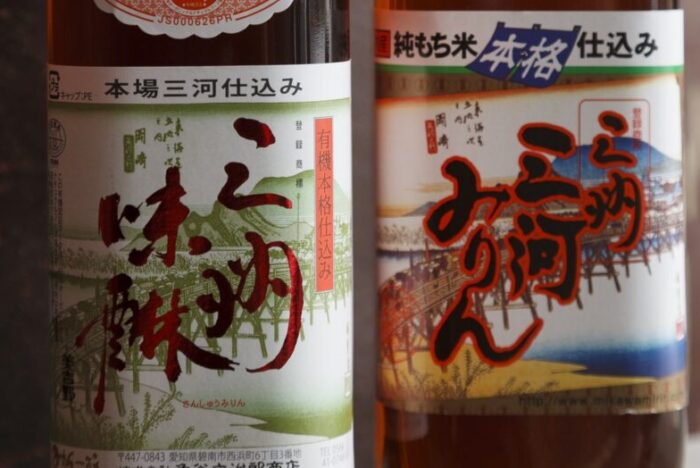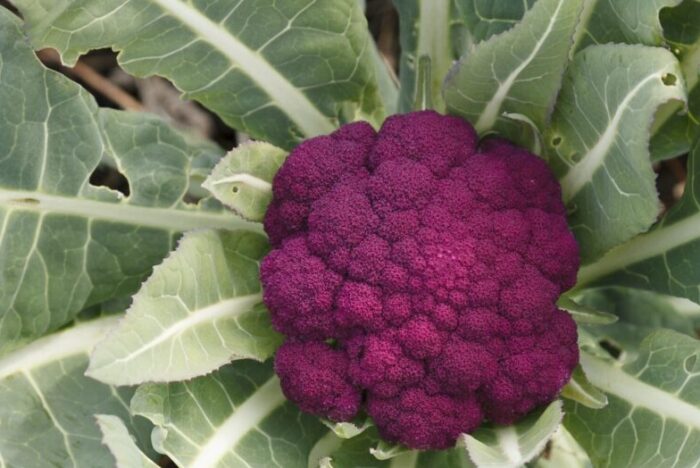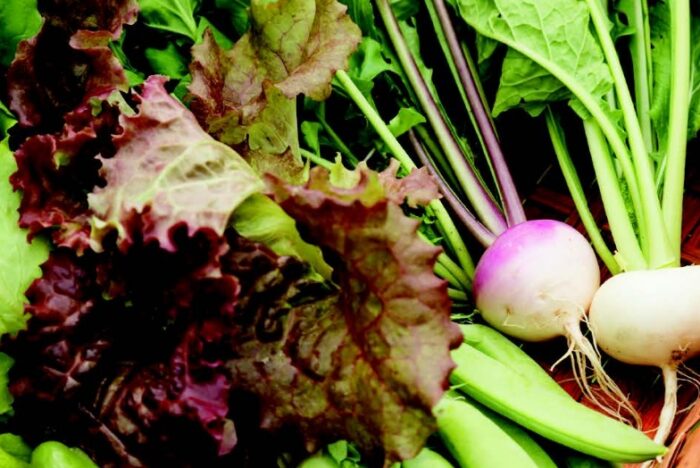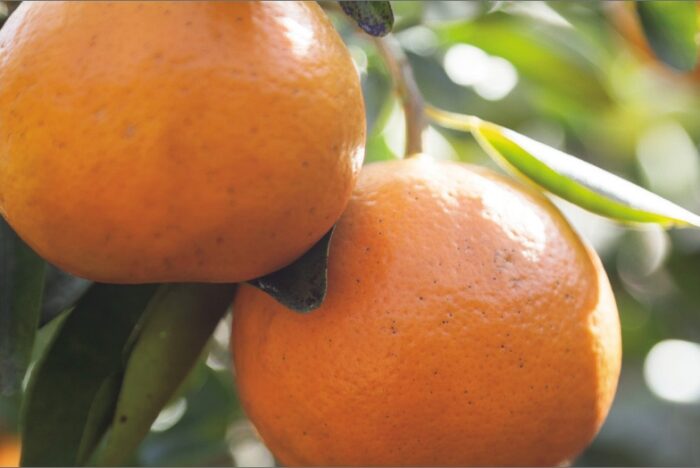Food of Japan: Learn and Enjoy
AMANOYA since 1846
Time-Honored Shops - Japan’s Hidden Treasures by Mr. Shoku-iku, Yukio Hattori Series
2016.05.01
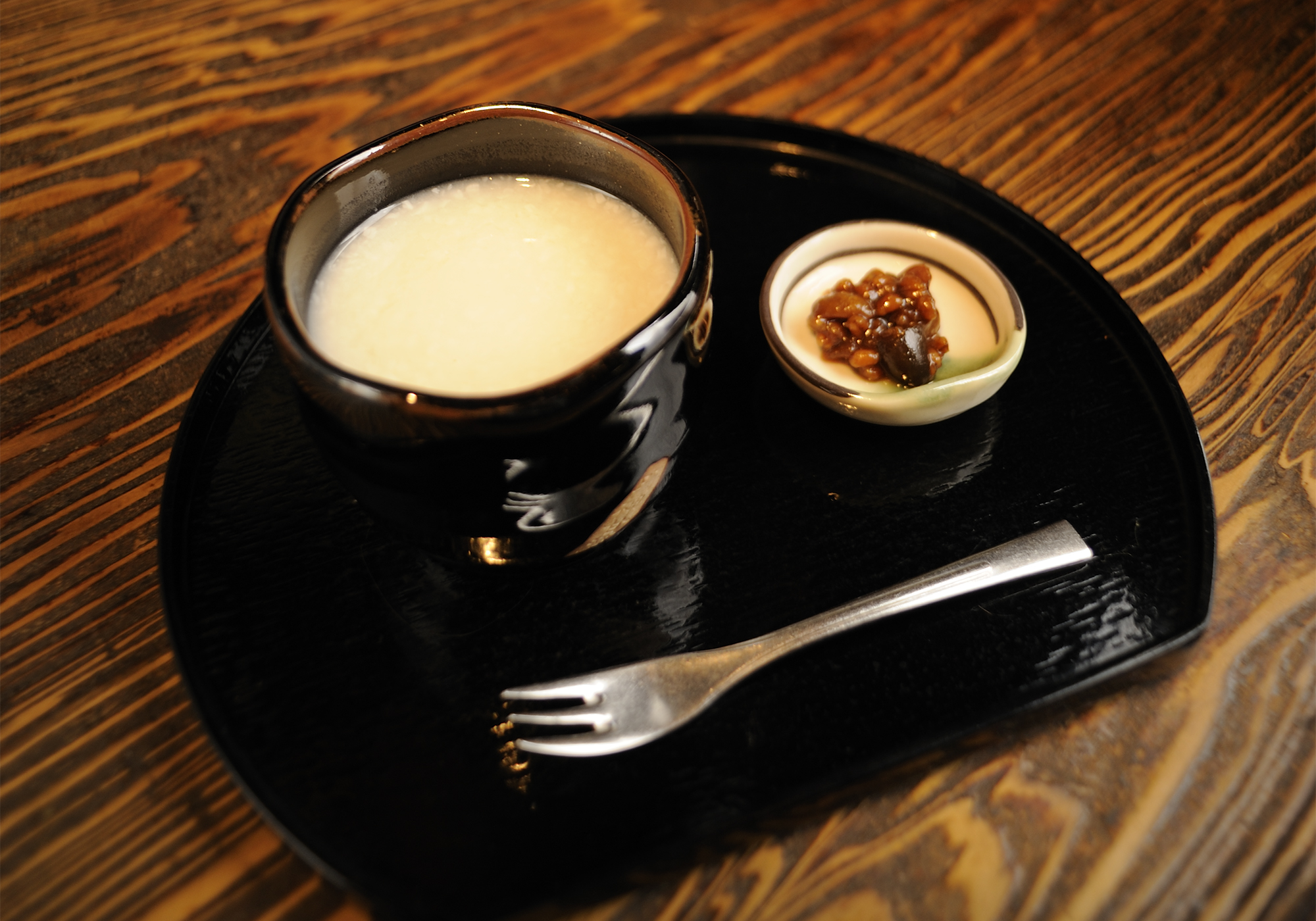
The tiny serving of savory housemade name-miso served with amazake (¥400) brings out the natural sweetness of the drink. Made with no additives and 100% non-alcoholic, the amazake has a clean finish enjoyed by all ages.
text by Michiko Watanabe / photographs by Toshio Sugiura / English text by Susan Rogers Chikuba
So often with nutrition it seems that the latest craze simply leads us back to traditional wisdom that was always there. As interest in the health benefits of fermented foods and beverages grows, I met with Kametaro Amano of Tokyo’s Amanoya―specialists for 165 years in miso, natto fermented soybeans, and amazake, a sweet non-alcoholic drink made from fermented rice.
Drink to Your Health
Our founder came to Tokyo from Kyoto in the mid-nineteenth century not to seek his fortune, as the family tale goes, but to settle a grudge. He never did find his foe but he stayed on anyway, opening up shop right here at our present location. Perhaps he chose this site because of its closeness to Kanda Myojin: the shrine honors the guardian deity of old Tokyo and so most of the city’s residents back then would have passed by eventually.
We sold home-brewed unrefined sake at first, but when the Meiji-period government raised the liquor tax, we limited our production to non-alcoholic amazake only.
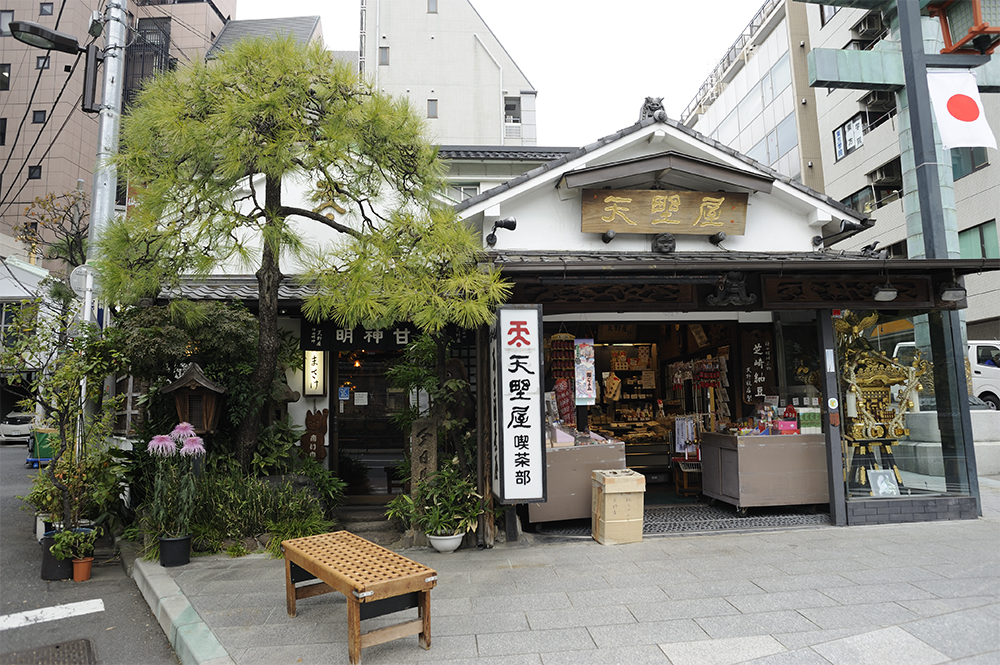
Just steps away from the red torii gate of Kanda Myojin shrine, Amanoya sells natto, miso, souvenirs, and amazake (¥350) for takeout at its shop on the right. To the left is the restaurant proper.
The brewing method for amazake came to Japan from China sometime in the eighth century. Its sweetness is the natural sweetness of the grain―no sugar is added. Most people know amazake as a warm drink but we also serve it chilled and, in the summer, iced.
In the restaurant it comes with a small dish of namemiso, a spread made for snacking that blends our housemade miso with soy sauce, mirin, ginger, and roasted soybeans.
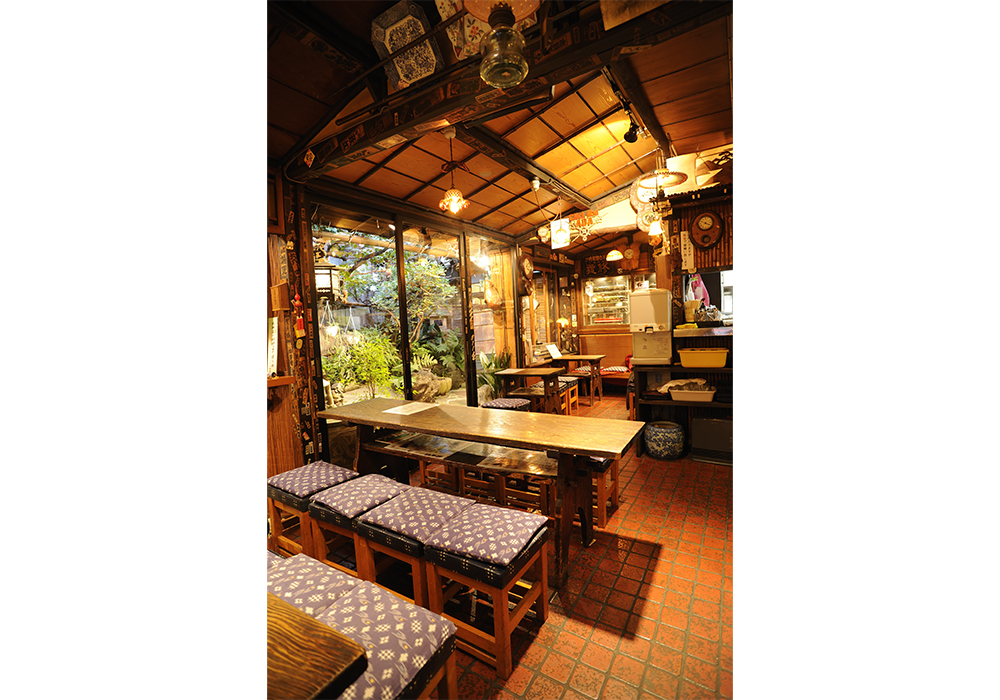
Views of the garden and an interior filled with antique clocks and vintage model railroad artifacts add to the restaurant’s relaxed atmosphere. Even the tables and chairs carry the warm patina of use.
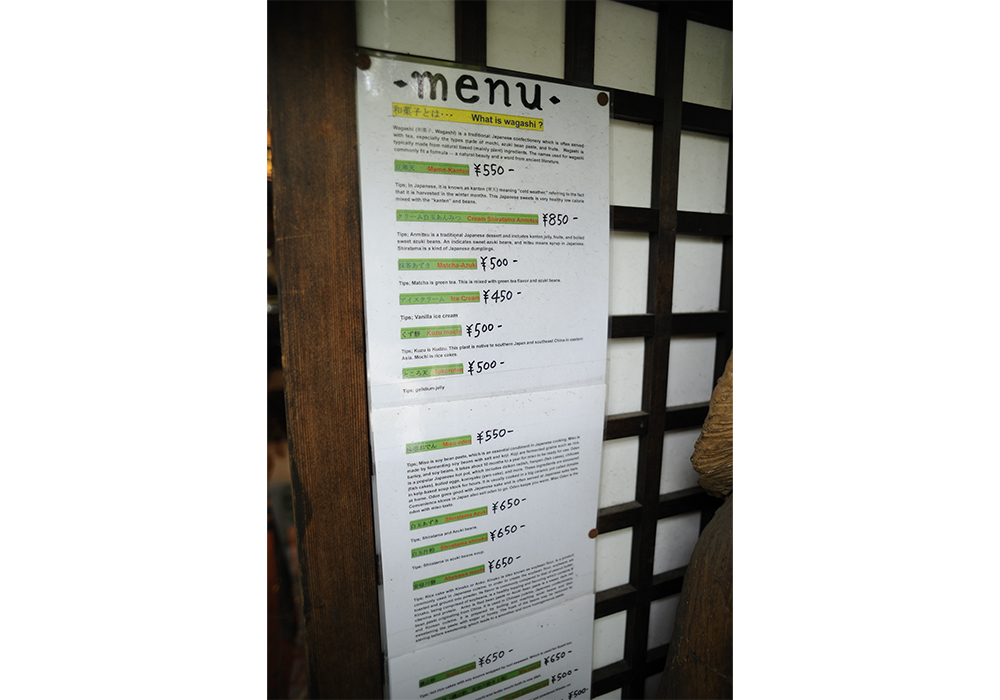
An English menu is posted inside for the many non-Japanese customers.
We keep the temperature of our fermentation cellar at a steady 18-20℃ and maintain the humidity at 98%. It takes a full four days to make the koji starter from steamed non-glutinous rice and mold.
On the first day we wash and soak the rice. On the second day we drain it, steam it, and let it cool to about body temperature. Then we add the mold spores, wrap it in cloth, and store it in the cellar to begin cultivation. In the evening we unwrap it and let it air overnight.
On the morning of the third day we move it to a separate fermentation room where it cultivates for an additional 20 hours at 38-40℃ in 90% or higher humidity. The koji gives off heat as it develops, so we check on it often to keep the temperature steady. On the morning of the fourth day, the starter is ready.
To this we add an equal amount of freshly steamed rice and store the mixture for ten hours at 60℃. This completes the process, but we let the fresh batch of amazake rest for an additional two days before serving.
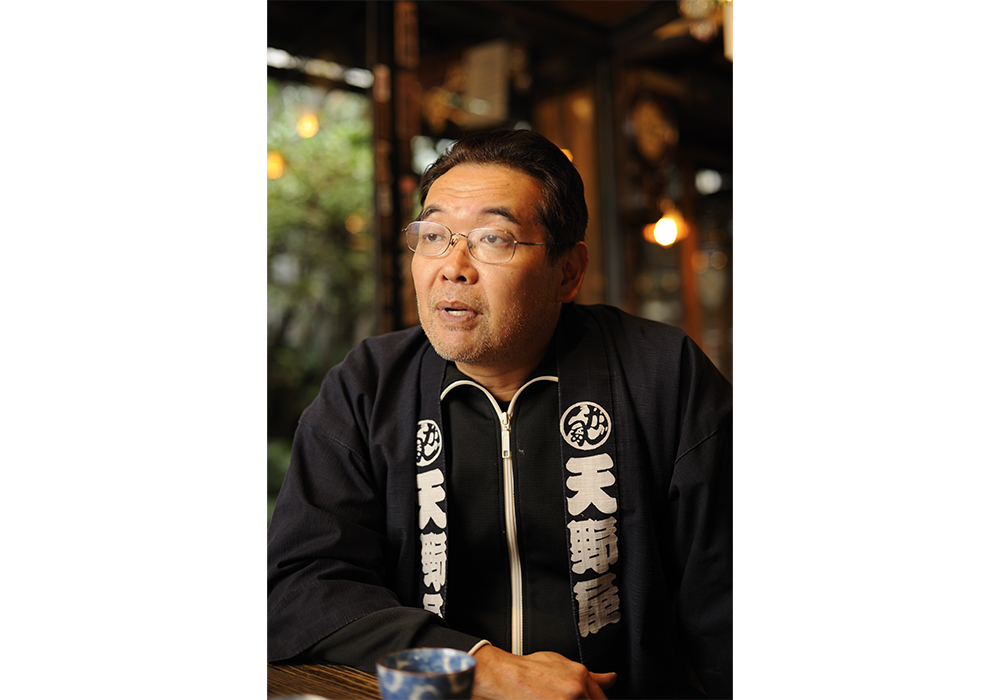
Sixth-generation owner Kametaro Amano keeps a watchful eye over the fermentation process―a 24-7 job.
Our large-bean natto, another specialty, takes at least two days to prepare so we are never far from home!
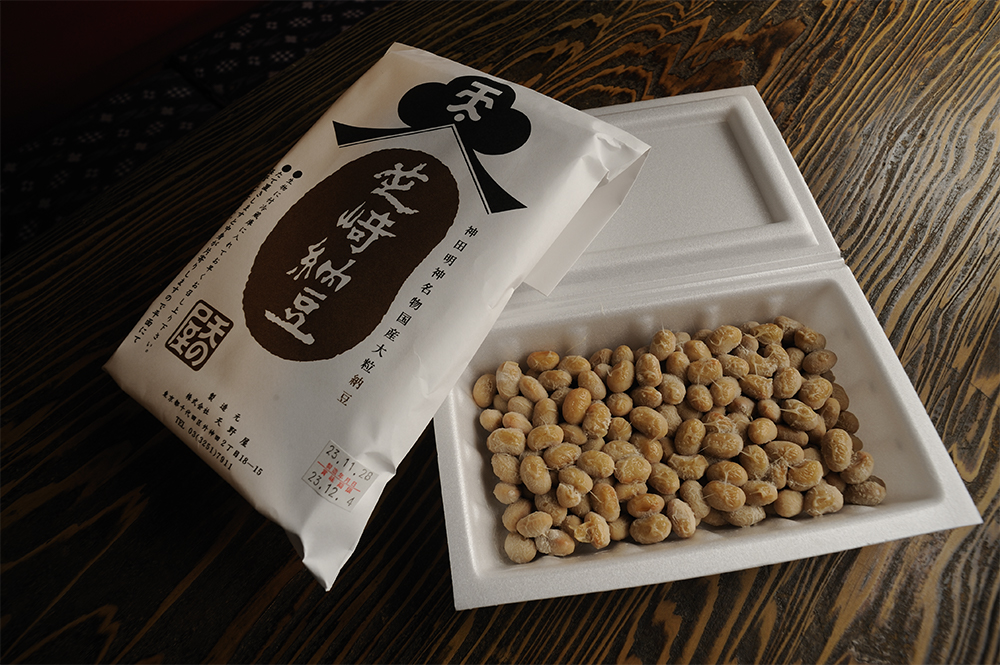
Large beans make this full-flavored natto a favorite of fermented-bean lovers. Try it in a nori wrap, with sake or beer.
◎Amanoya
Soto Kanda 2-18-15, Chiyoda-ku, Tokyo
☎03-3251-7911
From December through March, open daily from 10 a.m. to 6 p.m. (restaurant closes at 5:30 p.m.);closed Sundays from April.
Three minutes on foot from JR Ochanomizu Station.



